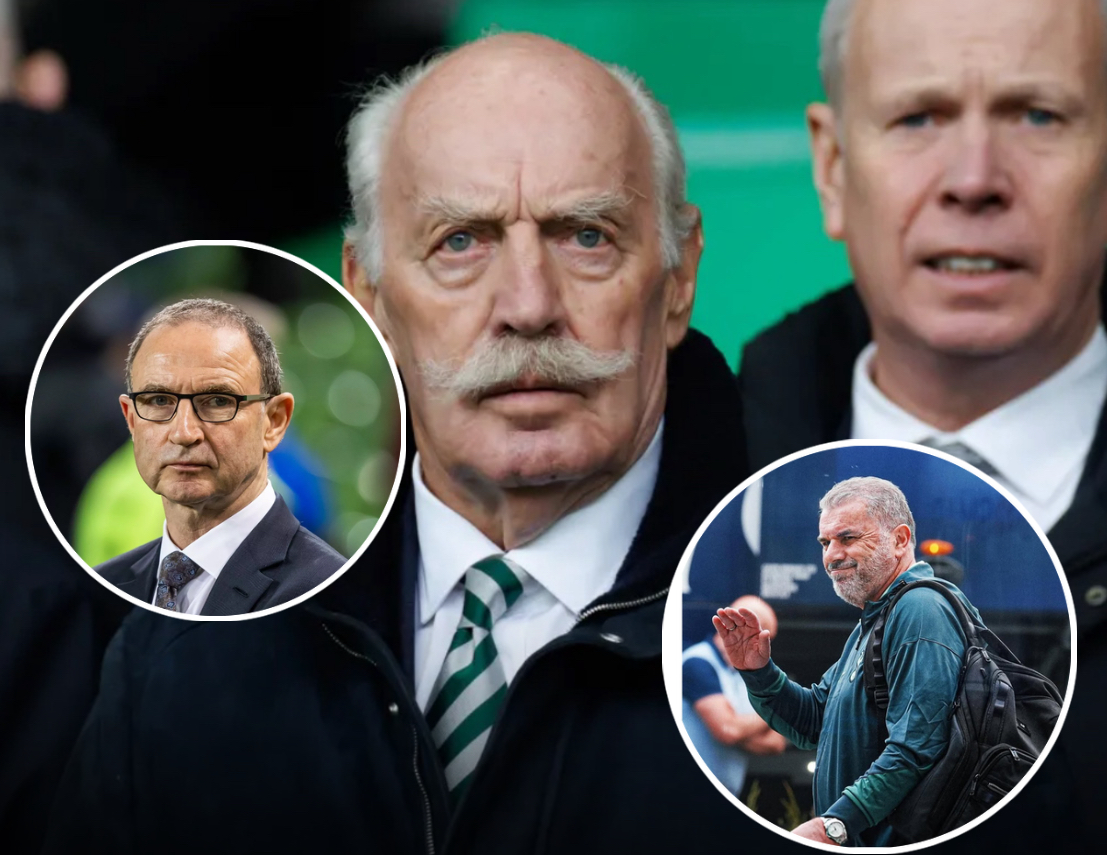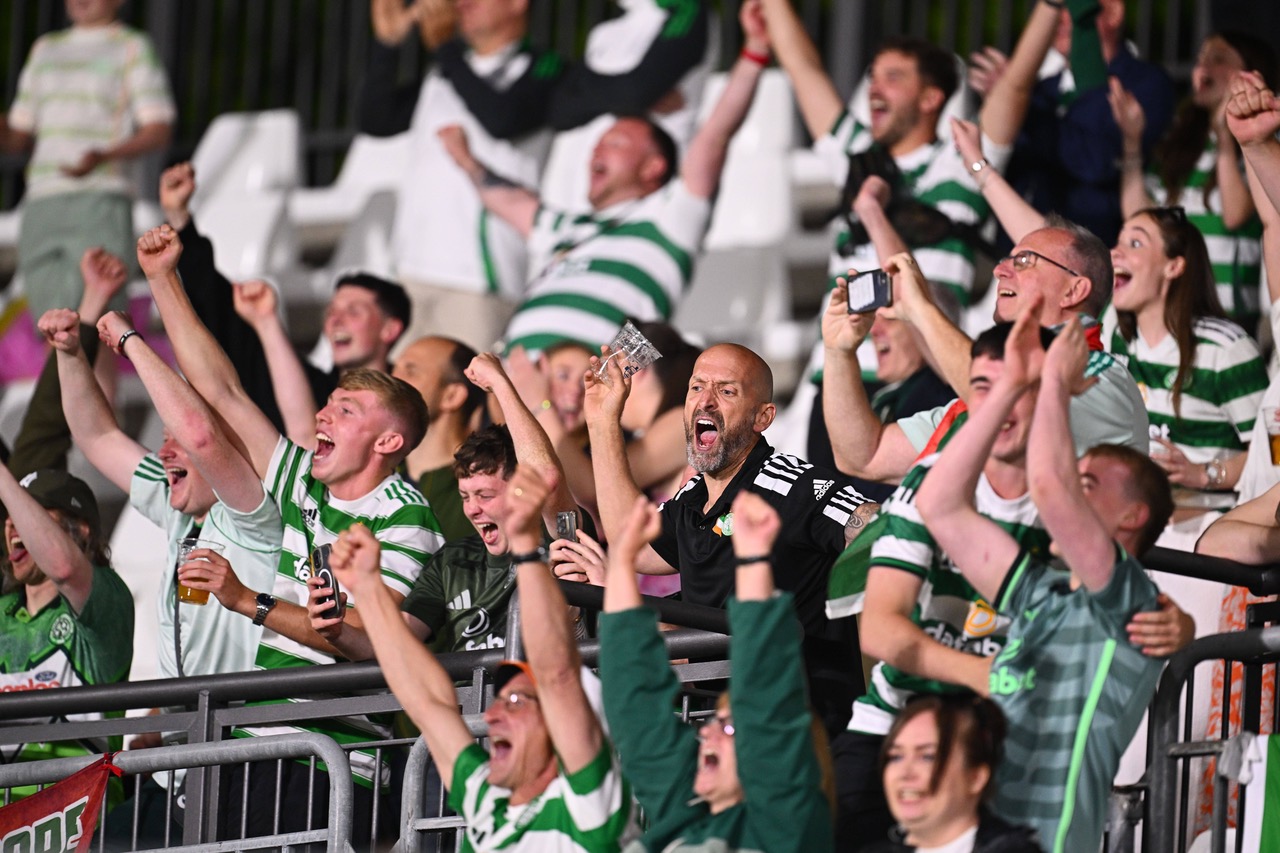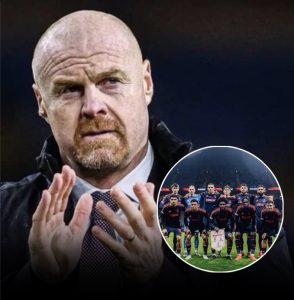INTERIM MANGER JUST ANNOUNCED A HUGE DECISION AFTER HEARING THE TALK BETWEEN ANGE POSTECOGLOU AND DERMOT DESMOND
Thank you for reading this post, don't forget to subscribe!
When you look at the recent developments at Celtic, the mood around Glasgow’s football giant is one of flux and urgency. The club had long ridden the wave of dominance in Scotland, yet cracks were showing in the façade. A sudden managerial exit, boardroom recriminations, and the looming search for the next leader all combine to form a dramatic backdrop.
The Fallout from Brendan Brendan Rodgers’ Departure
Celtic’s season was already under pressure when Rodgers tendered his resignation. The team found itself trailing rivals by eight points in the Scottish Premiership after a defeat to Heart of Midlothian F.C. that exposed fragility in the squad and the unity of the club.
Immediately following Rodgers’ exit, the club’s largest shareholder, Dermot Desmond, issued a blistering statement. Desmond accused Rodgers of fostering a “divisive, misleading and self-serving” atmosphere and publicly questioned his conduct despite the backing and investment that had been afforded him.
What emerged was more than just a change in personnel. It was a signal that on the board level and management level something had been rotten in the structure at Parkhead. One of the big takeaways: the club needed more than a quick fix; it required rebalance, credibility, and clarity of direction.
The Interim Appointment: Martin O’Neill Returns
Into this breach stepped Martin O’Neill — a figure steeped in Celtic history. He first managed the club between 2000-2005, delivering major trophies and establishing himself as a firm “Hoops” icon.
The surprise return in October 2025, however, was more than a nostalgic revival. O’Neill revealed he received the call late on the day Rodgers resigned, and that he had only 10 minutes to decide whether to step in. “It was surreal,” he admitted.
His mandate? To steady the ship. To restore belief among players and supporters. To give time — and runway — for a permanent successor to be identified.
The Search for the New Leader
While O’Neill was introduced as interim, the real question at Celtic now is: who will be the next permanent manager? The club quickly placed itself on the hunt for a younger, dynamic coach with a proven track record.
Among the names being floated, former Celtic boss Ange Postecoglou has come in for plenty of attention. He delivered success in his previous spell with the club and remains popular with supporters. Meanwhile, Kieran McKenna — currently managing at Ipswich and under contract until 2028 — is also in the frame.
All of this sets the stage for a high-stakes transition: Celtic need someone who can win now, repair the culture, and renew ambition without excessive delay.
A Surprising Twist: O’Neill’s Proposal
Amid this backdrop, a remarkable development has surfaced. After hearing the ongoing discussions between Postecoglou and Desmond, Martin O’Neill has reportedly demanded that the club allow him to remain in charge until the end of the season, before any permanent appointment is made.
This is a significant shift. Until now, O’Neill has been repeatedly clear that his role is interim and short-term. Yet now, by pushing to complete the season, he appears to be asserting a longer period of influence — potentially gaining veto-power over timing, process and the shape of the next manager’s entry.
Several factors might explain this move:
- Stability first: O’Neill may believe the team is too fragile to undergo another change in leadership mid-season. With league and cup commitments, continuity could be crucial.
- Trust in process: He may not be entirely comfortable with the speed or direction of the current search process, and feels a longer stint gives more breathing space.
- Legacy and protection: By staying through the season, O’Neill protects his own legacy and the immediate credibility of the club. If the new appointment fails, he remains the man who steadied the ship.
- Cultural reset: Given the culture issues exposed under Rodgers — as outlined by Desmond’s criticism — a longer interim period may be seen as a chance to rebuild trust, standards and identity before entrusting the reins to someone else.
It’s a bold gambit. The club may welcome the continuity, but must weigh it against the desire to bring in fresh leadership quickly, and the message it sends about ambition and pace.
What This Means for Celtic
The implications of this development are wide-ranging for all involved.
- For the players: They now have to respond to a manager who is, in effect, asking for an extended stay. It raises questions of motivation — is this still a stopgap or something more?
- For the board and Desmond: If they accept O’Neill’s demand, it indicates a willingness to slow the transition and give internal leadership more time. If they decline, it sets the scene for tension between coach and hierarchy.
- For the next manager: Whoever is chosen will step into a club that has just had a senior figure prolong his stay. That might change expectations, timelines and the handing over of the baton.
- For the supporters: There’s a demand for success now, not just promises. They will watch closely if O’Neill remains through the season — can he deliver results, restore pride, and set the tone for the future?
From a strategic standpoint, allowing O’Neill to complete the season could be seen as less risky than plunging into a hiring process with the squad in disarray. On the flip side, it may risk losing momentum — supporters may interpret delay as lack of ambition.
Key Questions Moving Forward
As this narrative unfolds, several questions will dominate the candle-lit corridors of Celtic Park:
- Will the board agree to O’Neill’s demand?
The alignment between club ownership, board and interim manager will be critical. - What happens if results don’t improve?
If the team continues to falter under O’Neill, the logic of keeping him through the season will come under scrutiny. - When and who will be the permanent successor?
Will the club move swiftly once the season ends or will this interim-plus period become a de facto full term? - How will recruitment and strategy adapt?
A longer interim stay may impact transfer plans, youth integration and long-term vision. - What message does this send to the fans and players?
Leadership transitions often carry symbolic value. Will this move engender confidence or suspicion?
Conclusion
Celtic find themselves at a pivotal juncture. The abrupt departure of Brendan Rodgers exposed deeper issues; the appointment of Martin O’Neill offered familiarity and reassurance; and now his demand to stay until season’s end injects another dimension into the transition.
If handled well, this may give Celtic the breathing room to rebuild properly — restore stability, clarity and identity — before stepping into the next era with a new permanent manager. But if mishandled, it could signal a club hesitating at a moment when bold action is required.
One thing is clear: the “interim” label which surrounded O’Neill’s return may be set to evolve into something more meaningful. Whether that is good news or bad news depends on how quickly the club can translate words into performance, vision into action and interim stability into long-term success.








Post Comment